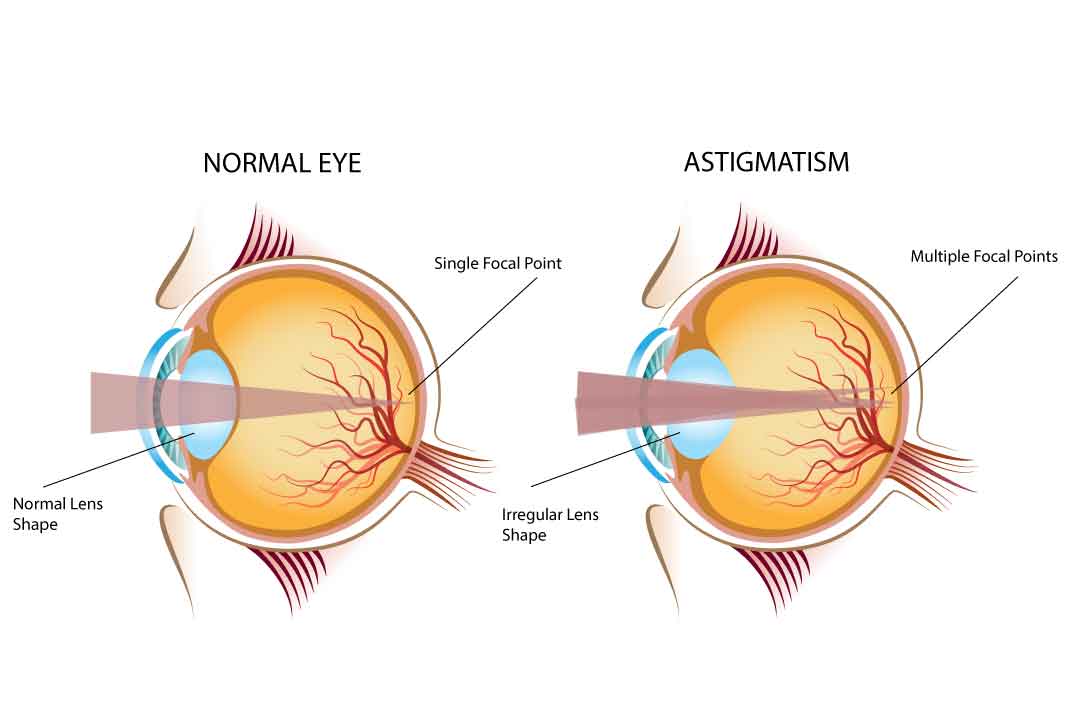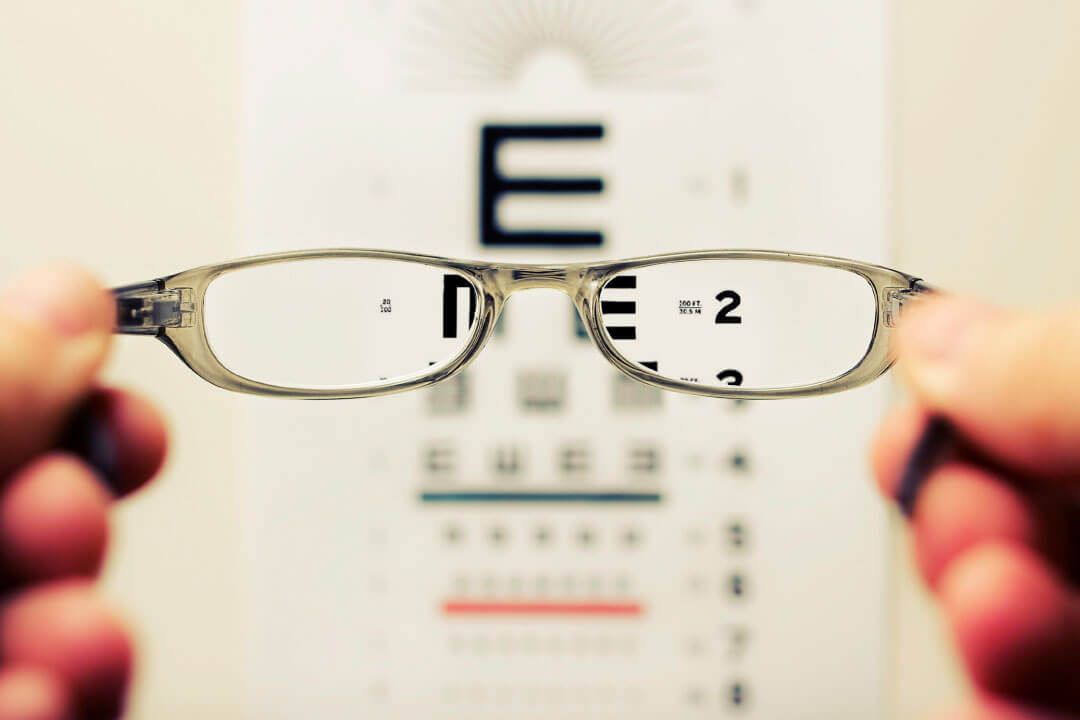
What is astigmatism?
Astigmatism is a common eye condition where the surface of the eye (the cornea) is irregular in shape. When light enters an eye through a normal-shaped lens it focuses on a single focal point on the retina at the back of the eye. When light enters an eye through an irregularly-shaped lens (such as with those with astigmatism) that light is diffused and ends up focusing on multiple focal points at the back of the eye, resulting in blurred vision.

Astigmatism can affect children and adults. You might have it from birth, or develop it later, perhaps after an injury to your eye.
Astigmatism is quite a common condition and it may be corrected with glasses, contact lenses or laser eye surgery. The best course of action is to book in for an eye test so we can diagnose and treat your astigmatism based on your symptoms, but in the meantime, read on to learn more about this common condition.

What are the causes of astigmatism?
Astigmatism can be a congenital condition (which means you have it from birth). That’s one of the reasons we encourage eye tests for young children so we can check and get on top of any possible issues as soon as possible.
It can also be hereditary, so if you are aware that it is something that runs in your family, we'd encourage you to bring your child (or yourself) in for an eye test.
It is possible that you could develop an astigmatism as you age, or perhaps as the result of an injury, so even if you weren’t born with the condition, we’ll check to see if you are showing any symptoms when we see you for your regular eye test.
Our very own optometrist Sally Stevens suffers from astigmatism:
"Astigmatism and myopia crept up on me in my twenties and until then I had not worn glasses. I can remember feeling nervous driving at night and finding that night driving in the rain was near impossible. Once I started wearing glasses with the correct prescription my confidence improved immensely and I felt much better judging distances and seeing clearly at night."

What are some of the symptoms of astigmatism?
Some of the common symptoms of astigmatism are:
- blurry vision - because light can't focus correctly on your retina,
- headaches and eye strain - because your eyes are working hard to counteract the issues they are having in seeing correctly
- problems seeing in poor light - such as when driving at dusk or when it is dark.
Of course, these symptoms are common to a number of other eye conditions as well. Because of this, our recommended first step is to book an eye test with us so we can examine your eyes and provide an appropriate course of treatment.

How do we treat astigmatism?
Most of the time, astigmatism can be treated by correction, that is, by wearing glasses or contact lenses.
Another solution could be refractive laser surgery. This is an invasive, but permanent solution.
We can advise you of the most appropriate treatment for your astigmatism, and talk you through the pros and cons of orthokeratology and refractive laser surgery, if those options are best suited to you.

Where should you start?
Whether for you or your child, the first step is to book in for an eye test. In the test we’ll measure the curve of your corneas, check how well your eyes focus light and check your vision in general. Should we find that you have astigmatism, our professional optometrists will then discuss the best option for you and arrange treatment.
Ready to book an appointment?
Online bookings available or call us on (07) 3463 0349.
This website does not provide medical advice. It is intended for informational purposes only. It is not a substitute for professional medical advice, diagnosis or treatment. Never ignore professional medical advice in seeking treatment. If you think you may have a medical emergency, immediately dial Triple 0 (000).


